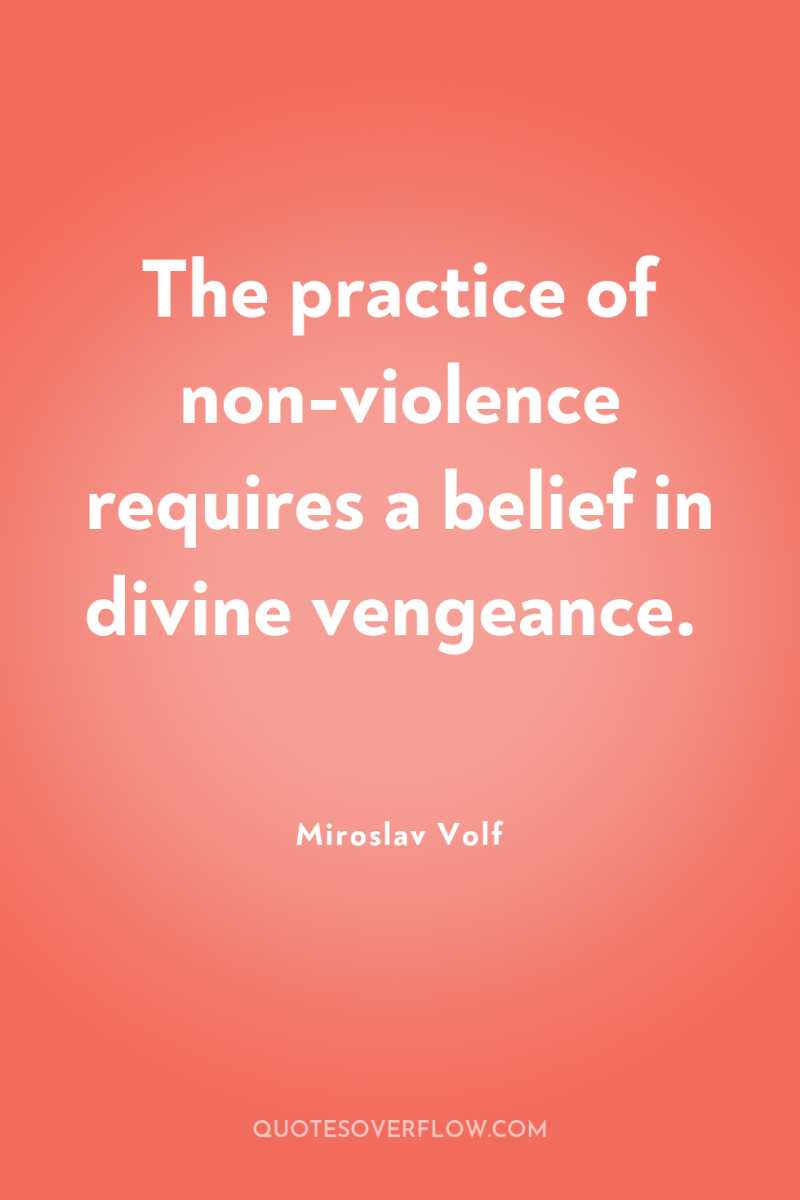
The practice of non-violence requires a belief in divine vengeance.Miroslav Volf
Because the Christian God is not a lonely God, but rather a communion of three persons, faith leads human beings into the divine communion. One cannot, however, have a self-enclosed communion with the Triune God- a "foursome, " as it were-- for the Christian God is not a private deity. Communion with this God is at once also communion with those others who have entrusted themselves in faith to the same God. Hence one and the same act of faith places a person into a new relationship both with God and with all others who stand in communion with God. .Miroslav Volf
Forgiveness flounders because I exclude the enemy from the community ofhumans even as I exclude myself from the community of sinners. But no onecan be in the presence of the God of the crucified Messiah for long withoutovercoming this double exclusion – without transposing the enemy from thesphere of the monstrous… into the sphere of shared humanity and herself fromthe sphere of proud innocence into the sphere of common sinfulness. Whenone knows [as the cross demonstrates] that the torturer will not eternallytriumph over the victim, one is free to rediscover that person’s humanity andimitate God’s love for him. And when one knows [as the cross demonstrates]that God’s love is greater than all sin, one is free to see oneself in the light of God’s justice and so rediscover one’s own sinfulness. .Miroslav Volf
To live with integrity, it is important to know what's right and what's wrong, to be educated morally. However, merely KNOWING is not enough. Virtuous character matters more than moral knowledge. The reason is simple: like the self-confessing apostle Paul in Romans 7, most of those who do wrong know what's right but find themselves irresistibly attracted to its opposite. Faith idles when character shrivels .Miroslav Volf
The principle cannot be denied: the fiercer the struggle against the injustice you suffer, the blinder you will be to the injustice you inflict. We tend to translate the presumed wrongness of our enemies into an unfaltering conviction of our own rightness.Miroslav Volf
Absolute hospitality would in no way amount to the absence of violence. To the contrary, it would enthrone violence precisely under the guise of nonviolence because it would leave the violators unchanged and the consequences of violence unremedied.Miroslav Volf
For Christian faith not to be idle in the world, the work of doctors and garbage collectors, business executives and artists, stay-at-home moms or dads and scientists needs to be inserted into God's story with the world. That story needs to provide the most basic rules by which the game in all these spheres is played.Miroslav Volf
For Christians, faith is a precious good, the most valuable personal and social resource. When it is left untapped, the common good suffers - not just the particular interests of Christians.Miroslav Volf
In a way, fraud in business is no different from infidelity in marriage or plagiarism in scholarly work. Even people committed to high moral standards succumb.Miroslav Volf
If I say, 'I forgive you, ' I have implicitly said you have done something wrong to me. But what forgiveness is at its heart is both saying that justice has been violated and not letting that violation count against the offender.Miroslav Volf